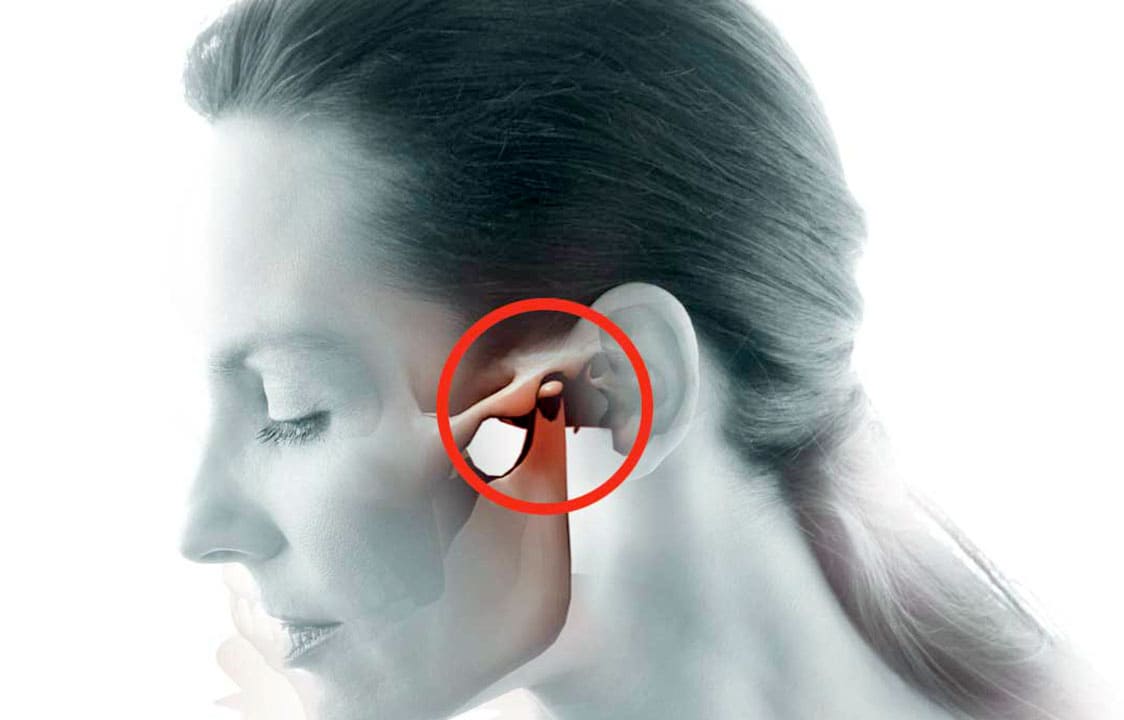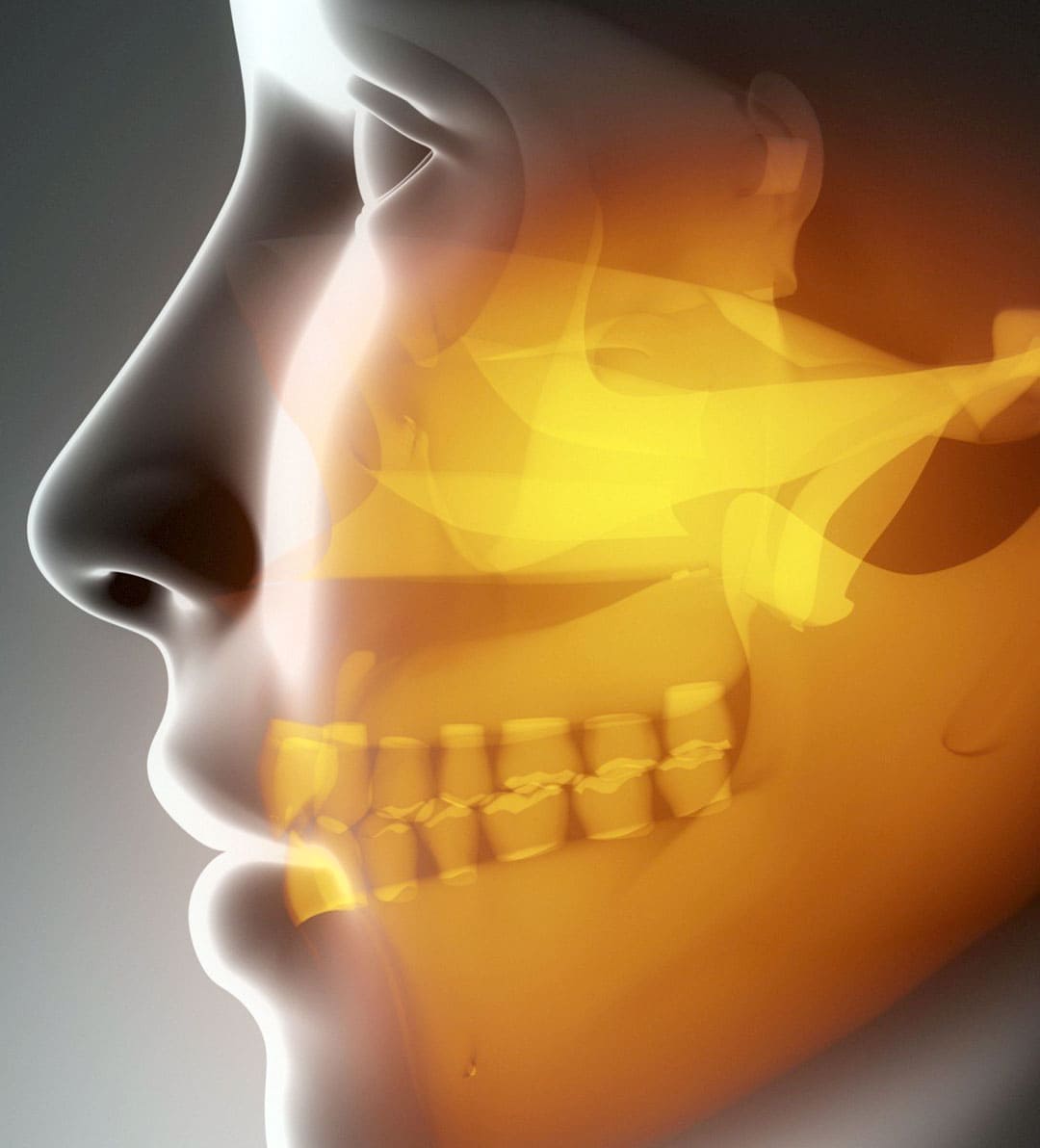Recover From Teeth Clenching
Treat chronic jaw pain once and for all.
- Reduce teeth grinding
- Improve jaw function

What Are TMJ Disorders?
TMJ (Temporomandibular Joint) disorders happen when you experience discomfort in the jaw joint and muscles connected to it. The TMJ combines hinge-like actions with sliding motions; it consists of a shock-absorbing disk and cartilage. You might have a TMJ disorder if
- The disk eroded due to an alignment issue.
- The joint cartilage is affected by arthritis.
- The muscles supporting the jaw are weak and stiff.

How to Treat TMJ Disorders?
There are multiple ways to treat a TMJ disorder. The dentist will choose the best treatment depending on the reason you have an issue:
- Stabilisation or a flat plane splint for alignment.
- Pain relievers and anti-inflammatory treatments for cartilage issues.
- Muscle relaxers and botox injections for muscle issues.

A splint is a removable device that covers several teeth made of resin; they are moulded from an impression of your teeth. The splint covers all the upper teeth to relax your sore muscles and gradually improve jaw movement.
Pain relievers can relieve the pain caused by a TMJ disorder if the TMJ disorder is not at an advanced stage, and it can correct itself naturally.
Muscle relaxers and botox injections are for TMJ disorders caused by muscle spasms and muscle stiffness that are causing the pain.
- Treatment Plan Preparation
- Flight Arrangements
- Accommodation
- Airport - Hotel Transport
- Treatment Plan Preparation
- Airport - Hotel Transport
- Flight Arrangements
- Accommodation




